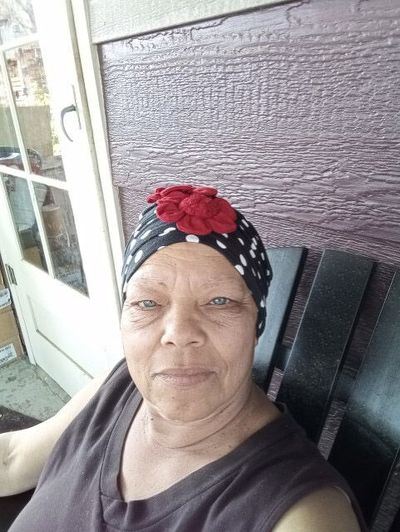Nonprofit offers transportation for cancer patients in the Inland Northwest

When Twyla Dorzweiler found out she had breast cancer this spring, she knew she would have to come to Spokane for treatment.
Dorzweiler lives in Republic, Washington, far from specialty cancer care, like many other people in surrounding rural areas.
And traveling to Spokane is not easy for those who live far away.
Once in Spokane, transportation to and from appointments can be daunting and expensive, especially when patients receive medication that prohibits them from driving. That obstacle was how Dorzweiler found Cancer Can’t, a nonprofit that connects volunteer drivers with patients. A coordinator at Cancer Care Northwest, where Dorzweiler is a patient, connected her with a driver who could take her to and from chemotherapy appointments.
“They don’t want you to drive on a day of chemo,” Dorzweiler said. “They give you so many drugs on that first day they don’t want you to drive, so that’s why they have someone come and pick us up.”
Over the weekend, she will get a call from a volunteer who is scheduled to pick her up the following week to set up details.
Recently, Cancer Can’t partnered with the Spokane Neighborhood Action Partners, or SNAP, through its Neighbors on the Go program, which serves seniors and people with disabilities who need to get to medical appointments.
Becky Van Keulen’s husband, Jonathan, started Cancer Can’t when he was diagnosed with bone cancer in 2014. He has since died from cancer, but Becky continues the work. Today, the organization has about 48 volunteer drivers who are connected with patients and drive them to appointments as needed. Through the SNAP partnership, Cancer Can’t volunteers have been providing an average of 145 rides per month for 20 individuals.
Cancer Can’t also provides financial and other support to families impacted by cancer in the region.
“There are very little resources for adults going through cancer and that was the problem,” Van Keulen said. “Our mission is to help improve the daily lives and circumstances of people living through this.”
The pandemic led to a delay in people seeking out necessary medical care, including screenings for cancers such as breast, cervical and colon.
While some health insurance companies will cover the cost to and from appointments, or for some accommodation while a patient receives treatment, Van Keulen said it’s not even a drop in the bucket compared to what most patients need.
Uber or Lyft rides add up. Patients with immune-compromised systems are sometimes wary of riding public transportation.
“What makes our program so unique is our patients have no other options,” she said.
Garrett Havens, resource rides coordinator at SNAP agreed, saying a common complaint from cancer patients is that it’s not viable financially to pay for a taxi or ride service, say, six times a week if a patient has three appointments.
Havens said SNAP is averaging about 200 rides a month for clients in the Spokane area, serving approximately 30 individuals through the Neighbors on the Go program, which is looking to expand.
“We could never have enough volunteers,” said Emily Grankowski, director of outreach at Cancer Can’t. “We have to decline rides because we don’t have enough volunteers to do that, and we’re not getting out to those rural areas at all.”
For Dorzweiler, if she wants to go home to Republic, she will drive herself on the weekends. However, her treatment regimen is weekly chemotherapy, meaning she would have to commute back and forth each week and stay at least a few nights. She decided to rent an apartment in Spokane instead.
She will go through this weekly treatment until Oct. 11, when she will have three weeks off before her mastectomy. Then she will get a month off before she begins daily radiation. All said, she will be in treatment through at least February.
The cancer diagnosis hit Dorzweiler hard. Her mother had breast cancer, too, and being away from her daughter is difficult for her. The support she receives at Cancer Care Northwest and Cancer Can’t helps.
“It’s been a tremendous experience,” she said.
The volunteer drivers take her from her new apartment to chemotherapy and back a few times a week.
Van Keulen said there is still a need for more volunteers and she expects that need to grow as more cancers are diagnosed potentially later than they should be due to the pandemic.
“The oncology infrastructure will be greatly impacted for years to come because of this,” Van Keulen said. “And we’re maybe just starting to see the repercussions.”
She hopes the organization can expand to rural counties, including Idaho, to serve patients who need to come to Spokane for treatment. The organization is specifically looking for volunteers in some of these rural settings so that they might be able to come into Spokane for other errands or needs, but bring a patient along and then return them home.
SNAP recently received funding from the Washington state Department of Transportation that allows for the expansion of the Neighbors on the Go program to more rural parts of Spokane County as well as surrounding counties, Havens said.
“There’s obviously a need for it, and I think the challenges have been there aren’t a lot of resources for folks in rural areas to access that transportation,” he said.